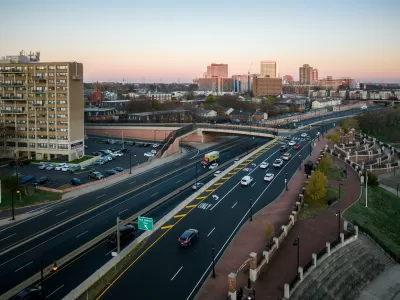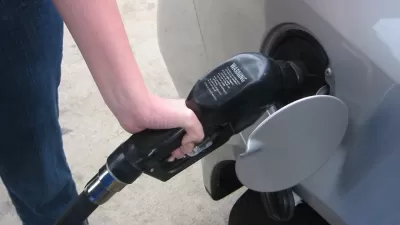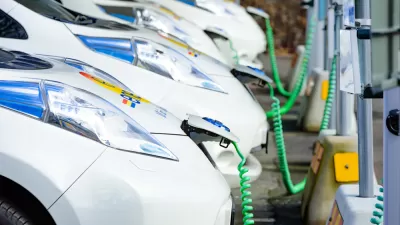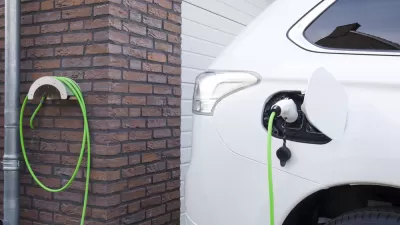The bill passed along party lines, but it received bipartisan pushback from both Republican and Democratic committee members, as well as environmentalists and car industry experts.

The New Jersey senate budget committee approved a bill last week to renew the state’s Transportation Trust Fund. As currently written, the bill would raise the gas tax around 2 cents a year and create a new registration fee for zero-emission vehicles. The money would go to support future state transportation projects, reports Colleen Wilson for NorthJersey.com.
Though the committee advanced the bill, which will now head for full approval by the New Jersey Senate, the vote was split along party lines and not everyone agrees on the approach. Republicans recently introduced their own bills for renewing the fund that would not increase the gas tax and would direct money from the sales tax on electric vehicles and a new registration fee to the state’s Transportation Trust fund. It would also rely on keeping the bonding capacity to $12 billion, less than the $15 billion proposed in the Democrats’ bill, writes Wilson.
However, experts who testified before the senate budget committee expressed concern that the proposed registration fee for electric vehicles would disincentivize the purchase or leasing of electric vehicles. Some suggested levying a 2.5-cent-per-kilowatt-hour fee at charging stations, which is similar to a gas tax in that it’s a usage based fee levied at the point of sale. Six other by states, including Iowa, use this approach.
FULL STORY: Gas tax hike — which would fund transit infrastructure — moves forward in NJ Senate

Alabama: Trump Terminates Settlements for Black Communities Harmed By Raw Sewage
Trump deemed the landmark civil rights agreement “illegal DEI and environmental justice policy.”

Planetizen Federal Action Tracker
A weekly monitor of how Trump’s orders and actions are impacting planners and planning in America.

Why Should We Subsidize Public Transportation?
Many public transit agencies face financial stress due to rising costs, declining fare revenue, and declining subsidies. Transit advocates must provide a strong business case for increasing public transit funding.

Understanding Road Diets
An explainer from Momentum highlights the advantages of reducing vehicle lanes in favor of more bike, transit, and pedestrian infrastructure.

New California Law Regulates Warehouse Pollution
A new law tightens building and emissions regulations for large distribution warehouses to mitigate air pollution and traffic in surrounding communities.

Phoenix Announces Opening Date for Light Rail Extension
The South Central extension will connect South Phoenix to downtown and other major hubs starting on June 7.
Urban Design for Planners 1: Software Tools
This six-course series explores essential urban design concepts using open source software and equips planners with the tools they need to participate fully in the urban design process.
Planning for Universal Design
Learn the tools for implementing Universal Design in planning regulations.
Caltrans
Smith Gee Studio
Institute for Housing and Urban Development Studies (IHS)
City of Grandview
Harvard GSD Executive Education
Toledo-Lucas County Plan Commissions
Salt Lake City
NYU Wagner Graduate School of Public Service





























